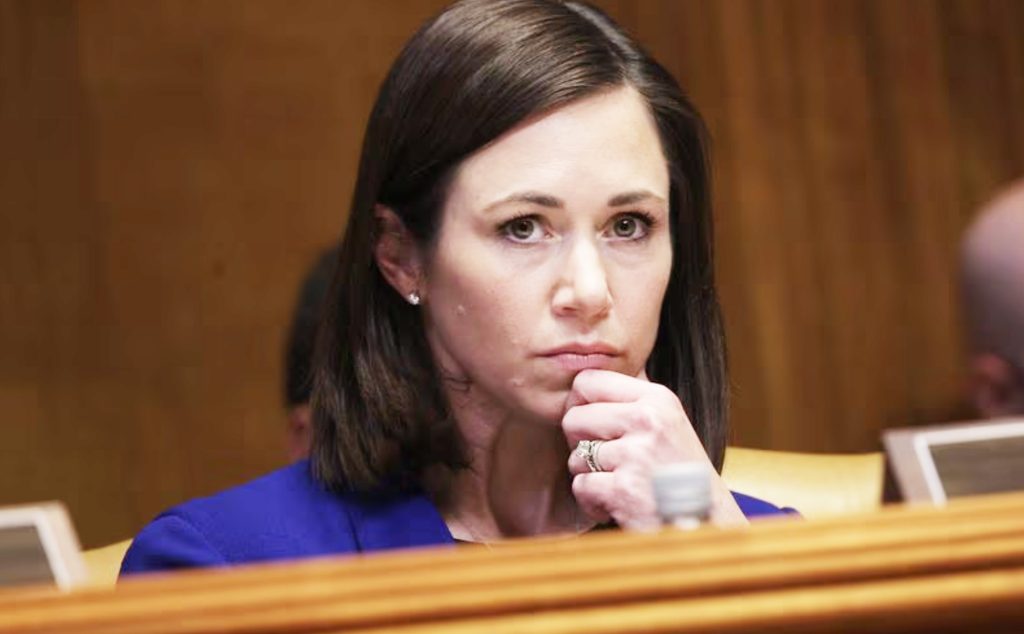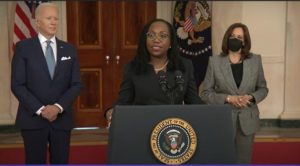By Paul Gattis
As a longtime staff aide to former U.S. Sen. Richard Shelby, including as his chief of staff, Katie Britt had the opportunity to learn from the master in securing federal funding for projects in his home state of Alabama.
Now as his successor, Sen. Britt is bringing home the bacon, so to speak.
As the Senate prepares its appropriations bills for the 2024 fiscal year, Britt worked to include $232.1 million in federal funding for Alabama projects in a mechanism known as congressionally directed spending – essentially, a fancy phrase for earmarks.
According to Congressional Quarterly Roll Call, Britt’s haul was the ninth highest individual collection of earmarks in the Senate.
Britt, sworn into office only eight months ago, accounted for more than 76 percent of the state’s earmarks.
Alabama’s senior Sen. Tommy Tuberville collected a total of $72 million or just 23.6 percent of the state’s haul.
Overall, Alabama has $304 million in budget earmarks.
That’s down from $656 million in Shelby’s final year in the Senate – a time when he was the top Republican on the Senate Appropriations Committee – but Alabama’s earmarks this year still rank seventh in the country, according to Congressional Quarterly Roll Call.
Asked about the disparity between Tuberville’s earmarks and Britt’s or what projects the senator wanted to highlight among his earmarks, Tuberville spokesman Steven Stafford told AL.com on Thursday that the senator would be releasing more information “in the next few days.”
Britt was immediately placed on the Appropriations Committee when she took office and appointed the top Republican on the committee’s Homeland Security subcommittee.
“As a member of the Senate Committee on Appropriations, I will always use my position to conduct oversight on the federal budget and fight for Alabama’s people, priorities, and values,” Britt said in a statement to AL.com.
“I firmly believe that our hard-earned tax dollars should be coming home to our communities, rather than being spent by bureaucrats in the Biden Administration to fund projects in New York and California.
Britt’s office spotlighted nearly two dozen specific funding projects that are part of her earmarks under six different categories. Top projects by funding:
- $20.6 million to revitalize and repair the George W. Andrews Lock and Dam on the Apalachicola, Chattahoochee and Flint Rivers in Houston County.
- $20 million for improvements and lane additions on SR-167 in Coffee County.
- $18.4 million for dredging, maintenance, and operations on the Tennessee-Tombigbee Waterway.
There is also a combined $33.8 million for dredging, maintenance and operations on three other waterways: Black Warrior and Tombigbee rivers, Mobile harbor and the Alabama-Coosa-Tallapoosa River System.
Other projects include funding for water infrastructure improvements in the cities of Auburn, Lincoln and Vestavia Hills and money for an array of healthcare projects across the state – from improving EMS access in 11 counties to providing equipment to expand capacity at Troy University’s School of Nursing.
During the race for the U.S. Senate last year, while campaigning against Britt, retired Congressman Mo Brooks was critical of earmarks and pointed at Shelby as more responsible for the nation’s debt than anyone else. Brooks noted Shelby’s long tenure on the Appropriations Committee, which included a two-year term as its chair.
Shelby’s office at the time responded by saying Brooks was “out of touch” and added, “The reality is that if these federal funds don’t come to Alabama, they’re going elsewhere.”
This week, in her statement to AL.com, Britt said: “In this year’s Appropriations process, I was proud to work with local officials from across Alabama to identify key opportunities for needed investments and secure funding while being responsible and accountable with taxpayer dollars.
“We were able to achieve significant wins for Alabamians while getting back to regular order and restoring transparency to the process. Moving forward, I will continue to fight to put hardworking Alabama families first and ensure Alabamians’ money is strategically, prudently invested in our state’s strength, growth, and future.”











